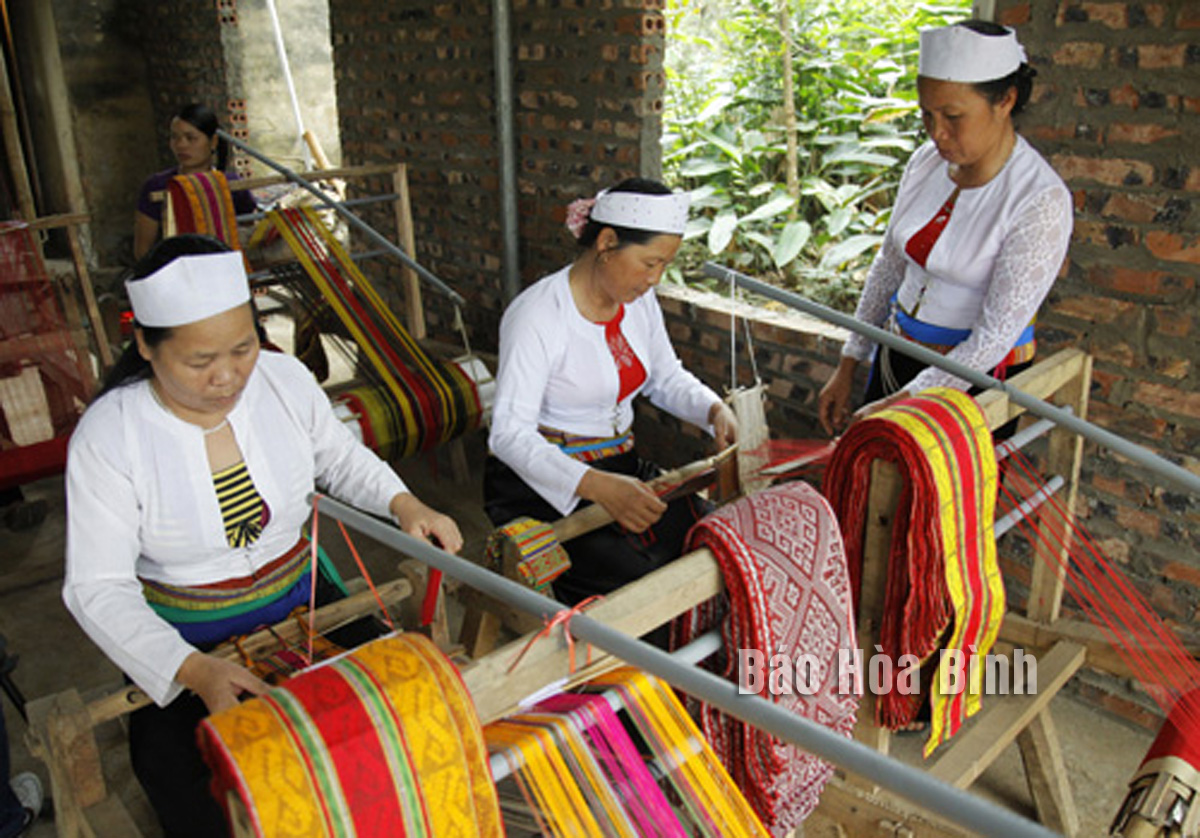
Hoa Binh province currently has 134 non-agricultural cooperatives, accounting for representing 26.8% of the local total cooperatives. Of them, 42 are in industry and handicrafts, 10 in construction, 13 in electricity, 20 in trade and services, 6 in environmental sanitation services, 14 in transportation, 10 in tourism, and 19 in other fields.
In recent years, traditional brocade weaving cooperatives have been particularly effective, playing a crucial role in preserving and promoting the cultural heritage of the Muong ethnic group.
These non-agricultural cooperatives have attracted over 2,000 members and created jobs for approximately 6,900 workers. In the first half of 2024, the average profit per cooperative was around 131 million VND (5,300 USD), with workers earning an average monthly income of 5.84 million VND.
According to the provincial People’s Committee, all non-agricultural cooperatives have successfully completed their transition and reorganisation in accordance with the 2012 Cooperative Law, thereby creating a solid foundation for future development. They play a significant role in advancing the province's goals for new style rural development, particularly in meeting Criterion 13, which focuses on production organisation.
Currently, 114 out of 129 communes in the province have met this criterion.
Hoa Binh province is undergoing a dynamic transformation amid Vietnam’s national digital transition. Building on Poliburo’s Resolution No. 57-NQ/TW on breakthroughs in science, technology, innovation, and national digital transformation, the province has rolled out a wide range of practical action plans. A standout initiative is the "Digital Literacy for All” movement, an effort to ensure that no one is left behind in the digital era.
Hoa Binh province is undergoing a dynamic transformation in the wake of the national digital transformation movement. Building on Resolution No. 57-NQ/TW of the Politburo on breakthroughs in science, technology, innovation, and national digital transformation, the province has implemented a wide range of practical action plans. A standout initiative is the "Digital Literacy for All” movement ambitious effort to ensure that no one is left behind in the digital age.
With a spirit of unity and proactive problem-solving, the Party Committee, the government and the people of Dong Lai Commune (Tan Lac District) have made great strides in implementing the resolutions of the 24th Party Congress of the commune for the 2020 - 2025 term. Focusing on leadership and practical actions, the commune has brought the Party’s resolutions into daily life, creating strong impacts and pushing the local development forward.
Amid the nationwide push for digital transformation, young people in Hoa Binh Province are stepping up as dynamic pioneers, applying technology to enhance Youth Union operations and expand the reach of youth-led initiatives. Through creativity and adaptability, Youth Union organizations at all levels have introduced a series of practical solutions, contributing to modern governance and community development.
In recent years, An Nghia commune, located in Lac Son district, has stepped up administrative reform, focusing on improving the quality and efficiency of its single-window service unit for receiving and processing administrative procedures. These improvements have helped create favourable conditions for local residents and organisations to handle administrative procedures, contributing to the commune’s broader socio-economic development.
The Prime Minister-approved master plan to develop the multi-use value of forests ecosystems through 2030, with a vision to 2050, aims to improve the management and sustainable use of forest resources, create jobs, increase incomes, and improve the living standards of ethnic minorities, people in mountainous and remote areas, forest workers and those living near forests.



